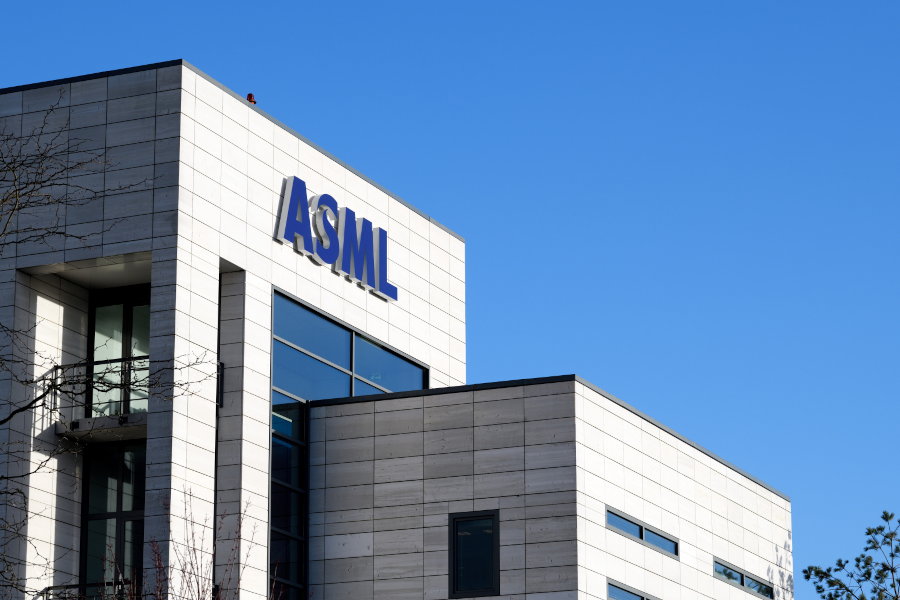 INFRA
INFRA
 INFRA
INFRA
 INFRA
INFRA
ASML Holding NV, a major equipment supplier to the chip industry, today posted mixed third-quarter earnings and a 2024 sales forecast that fell short of analyst expectations.
Shares of the Netherlands-based company dropped more than 4.5% on the results.
ASML is the world’s top maker of lithography machines, which use light beams to carve transistors into silicon wafers. The company faces competition across several of the product categories in which it competes. However, it’s the sole maker of EUV machines, which are considered the most advanced lithography systems on the market.
ASML’s net sales grew 15.5% year-over-year, to €6.67 billion, in the third quarter ended Sept. 30. Analysts were expecting €6.71 billion. ASML made most of its revenue, or €5.3 billion, from new hardware sales, while the rest came from providing upgrades and support to existing customer installations of its equipment.
The company said its logic business accounted for 76% of its hardware revenue in the third quarter. That business makes chipmaking equipment geared towards processor manufacturing. According to ASML, the remaining 24% came from selling gear optimized for making memory chips.
Broken down by product category, €1.9 billion of ASML’s third quarter hardware revenue came from the sale of 11 EUV machines. DUV, or deep ultraviolet lithography, systems accounted for much of the rest. DUV systems use light to carve transistors into silicon wafers much like EUV equipment, but they have less advanced manufacturing capabilities.
Lithography machines’ capabilities vary based on the wavelength of the light beams they generate. The shorter the wavelength, the smaller the transistors a machine can produce. ASML’s EUV systems lead the market with a wavelength of 13.5 nanometers, while its DUV machines operate in the 193-248 nanometer range.
Chipmakers typically deploy both types of equipment in their production lines. EUV systems are used to make the most advanced circuits in a processor, while less complex components are made with DUV equipment.
Although ASML fell short of analysts’ third quarter revenue forecasts, it managed to deliver a higher-than-expected profit. The company’s net income of €1.89 billion easily topped the €1.8 billion that Wall Street had projected.
ASML said that the earnings surprise was partly the result of several “one-off cost benefits” it realized in the third quarter. Another factor was strong demand for so-called immersion DUV machines, which have a higher profit margin than some of the company’s other systems.
The light that an immersion DUV machine emits travels through a pool of liquid before reaching the silicon wafers the system is processing. This liquid, which is often water, modifies the optical properties of the light beams in a way that allows transistors to be produced more accurately. The result is increased manufacturing efficiency and fewer faulty processors.
ASML expects demand for its lithography systems to continue increasing through the rest of the year. The company is projecting a 30% year-on-year sales increase for fiscal 2023, which will partly be driven by an expected 25% jump in EUV system sales.
But ASML doesn’t expect this momentum to continue into fiscal 2024. The company is projecting flat sales for next year, which is well below the 7% growth that analysts were expecting. ASML is attributing the slowed growth to the ongoing semiconductor industry slump, which has hurt the earnings of major chipmakers such as Intel Corp. and Samsung Electronics Co. Ltd.
“The semiconductor industry is currently working through the bottom of the cycle and our customers expect the inflection point to be visible by the end of this year,” said ASML Chief Executive Officer Peter Wennink. “Customers continue to be uncertain about the shape of the demand recovery in the industry. We therefore expect 2024 to be a transition year.”
ASML expects demand to pick up again in 2025. The company’s order backlog, or the value of the equipment that customers have ordered but not yet received, currently stands at €35 billion. Over the next few years, ASML’s sales could receive a boost from the fab construction projects Intel and other major chipmakers have announced in recent quarters, which are expected to be worth tens of billions of dollars.
THANK YOU